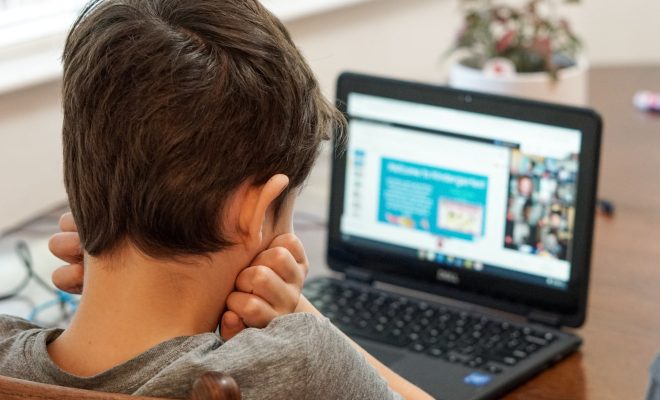Personalized Learning Should Start in Libraries

Can a library be the perfect place for personalized learning? We believe the answer is yes. Libraries offer endless resources, space for learning, and individuals who are ready to assist students in the learning and research process. Sometimes when professors’ office hours do not line up with students’ schedules, we often forget, that librarians are here to help us too! That’s why we have libraries and librarians! Even if we think it is intimidating to approach a librarian, it should not be, because they are the experts in libraries! Not only are librarians available to assist us, but they are also available to teach us how to use the resources that the library has to offer.
Libraries can and should be the best place for individualized learning as we progress into the 21st century. The development and accessibility of online resources, as well as the recent trend in creating Makerspaces in libraries, are two examples of how libraries provide the perfect space for personalized learning. Libraries also provide the resources, the professionals, and the opportunities for all kinds of personalized learning. In this piece, I will explore the reasons why libraries are the perfect starting point for personalized learning.
Availability of Resources in Libraries
Once upon a time, I found a book on a shelf using the Dewy Decimal System. The library either had a book I needed, or it didn’t. Sometimes the library could order a book from a neighboring library, but ordering a book or resource was often a long and painful process. You could wait four days or even two weeks to receive a material that you needed immediately for a class project. Now, however, libraries have changed; libraries can request and receive access to an online book or resource immediately for a student. Libraries are making use of every available technology and resource. According to Meris Stansbury of eSchoolNews, we can increase personalized learning through the acquisition and use of online tools. We no longer need to wait a week to receive a book that we need for research, as it is often available to us at our fingertips!
Schools are the Founding Blocks for Excellent Libraries
We can probably agree that the way students are learning today is totally different from even just ten years ago. School administrations are also changing the way they urge students to learn, and libraries are changing alongside the changes in schools. In one New Jersey school district, administrators, Ross Kasun and Pamela Haimer presented students with “the marshmallow challenge,” where students had 18 minutes to develop the tallest structure possible using only rope, a single marshmallow, spaghetti, and tape. We are entering an age when we are urging students to think and act creatively. In order to engage in the creative process, libraries are providing those needed spaces.
Makerspaces and Spaces for Learning
A recent trend in libraries is the development of so-called “Makerspaces” in libraries, which are exactly what the name sounds like. Spaces to make things. Spaces to develop, think, create, and share. Libraries are becoming Makerspaces, regardless of whether or not the original intention of the library was to create a Makerspace. As the world’s views and pedagogies regarding the use of the library changes, so do our views of even how library space should be used and look. Makerspaces strongly encourage learners to use their available tools and space to communicate and collaborate with their peers. In Makerspaces we are expanding learning and creating new solutions to real-world problems. Sometimes students’ work can even be displayed in the library, says Meris Stansbury of eschoolnews.com.
The idea of what a library is supposed to be is slowly changing altogether. There was also once a time when libraries were meant only to be places for quiet independent study. Libraries are now encouraging more teamwork, group study, and collaboration. As we begin to foster and support the development of group learning, we are also encouraging personalized learning. When students are not afraid to raise their voice “above a whisper” in the library, they may be more confident in seeking guidance from their fellow peers, research assistants, librarians, and other professionals. According to Tara Garcia Mathewson of educationdive.com, personalized learning and instruction is the key to assisting students. This can be accomplished through the use of personalized spaces for learning such as Makerspaces.
Libraries Can Track Students’ Data
Another way that libraries can serve as centers for personalized learning is through data collection. Meris Stansbury states that libraries can utilize databases to follow work completed by students, alongside the assistance of librarians. Libraries now have the ability to track students’ research as well as study patterns and habits. Libraries are gaining and developing unique insight into the individual needs of their students, and certainly the needs of the entire student population, by tracking student data.
Conclusion: Looking into the Future
As educators and learners alike look into the future of learning we can recognize and identify that schools and school administrations can begin the process of individualized learning by encouraging creative thinking. Personalized learning will also increase the development of students’ critical thinking and reasoning skills. Libraries can build on opportunities for students’ personalized learning options by capturing student data, assisting students with projects, providing resources, technology, and the needed space for collaboration as well as independent study.






